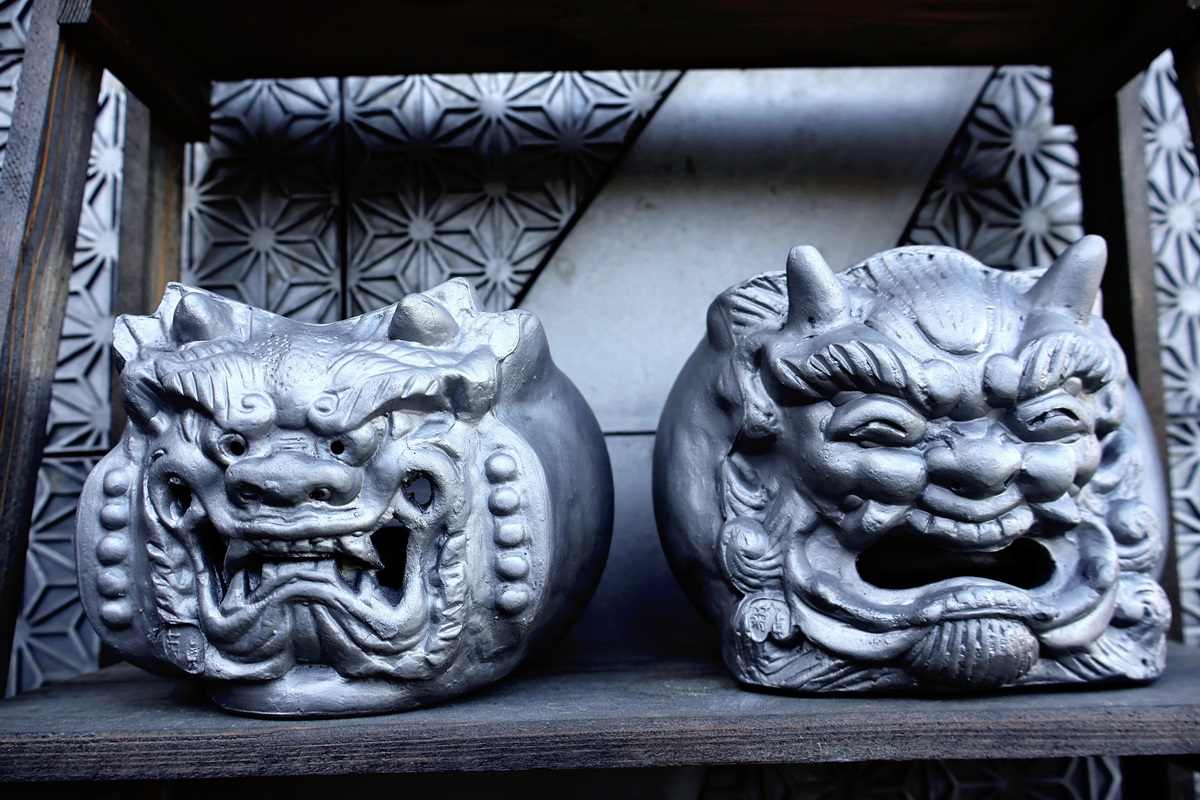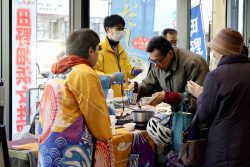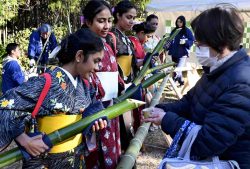
Shichirin stove made with traditional roof tile creation method in Imabari, Ehime Prefecture
12:37 JST, January 13, 2024
IMABARI, Ehime — Kikuma roof tiles are a specialty of Imabari, Ehime Prefecture. Their production method is now being used to develop small traditional charcoal stoves called shichirin.
The manufacturer, Koizumi Seigawara, is targeting the product mainly at people who enjoy outdoor activities and restaurants.
Kikuma roof tile production is said to date back 750 years. But roof tile manufacturers have been shutting down one after another across the country due to the increasing use of roofing materials other than tiles.
Koizumi Seigawara has had difficulties in continuing its business through production of roof tiles alone. To solve this problem, it has been working hard to develop various products using its materials and techniques, including ornaments of Chinese zodiac animals, plates, sake cups and containers.
The shichirin is topped with a metal net for grilling about 13 centimeters in diameter. Although the net is relatively small, the shichirin itself weighs two kilograms and projects a powerful presence. The simple bowl-shaped model will be priced at ¥18,000 and the version that is shaped like the face of an ogre — similar to traditional roof ornaments — will cost ¥30,000.
The company will begin taking orders in March.
Related Tags
Top Articles in Features
-

Sapporo Snow Festival Opens with 210 Snow and Ice Sculptures at 3 Venues in Hokkaido, Features Huge Dogu
-

Tokyo’s New Record-Breaking Fountain Named ‘Tokyo Aqua Symphony’
-

Tourists Flock to Ice Dome Lodge at Resort in Hokkaido, Japan; Facility Invites Visitors to Sleep on Beds Made of Ice
-

High-Hydration Bread on the Rise, Seeing Increase in Specialty Shops, Recipe Searches
-

Heirs to Kyoto Talent: Craftsman Works to Keep Tradition of ‘Kinran’ Brocade Alive Through Initiatives, New Creations
JN ACCESS RANKING
-

Japan PM Takaichi’s Cabinet Resigns en Masse
-

Japan Institute to Use Domestic Commercial Optical Lattice Clock to Set Japan Standard Time
-

Israeli Ambassador to Japan Speaks about Japan’s Role in the Reconstruction of Gaza
-

Man Infected with Measles Reportedly Dined at Restaurant in Tokyo Station
-

Man Infected with Measles May Have Come in Contact with Many People in Tokyo, Went to Store, Restaurant Around When Symptoms Emerged























